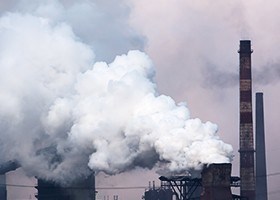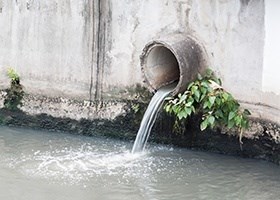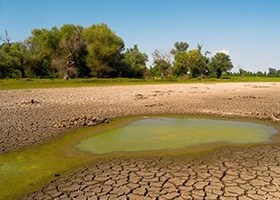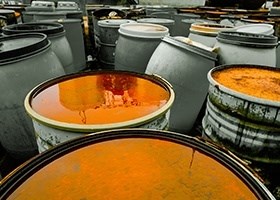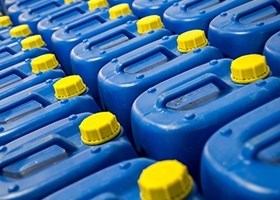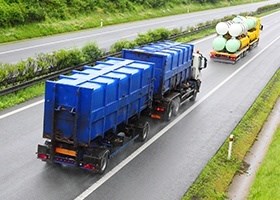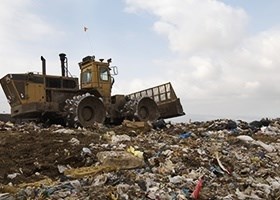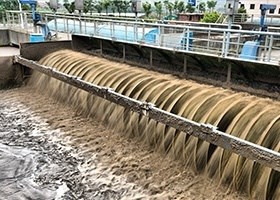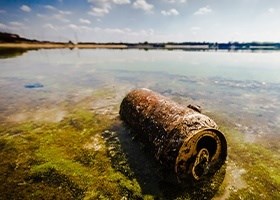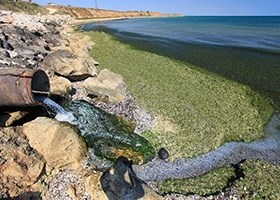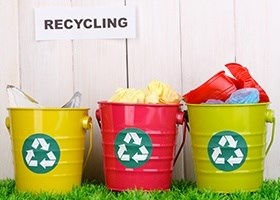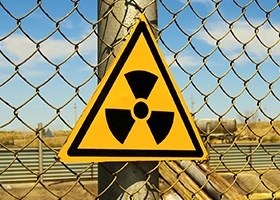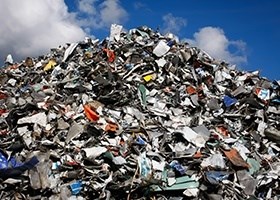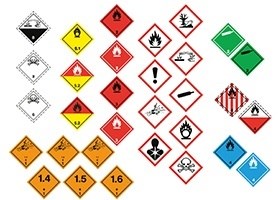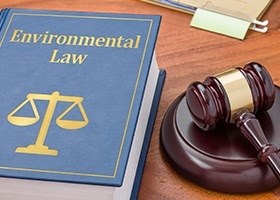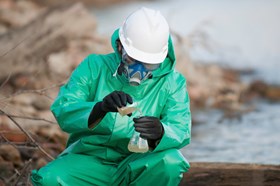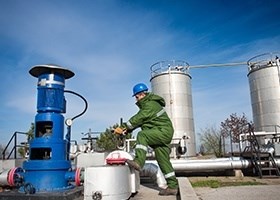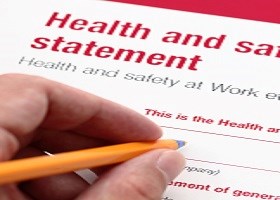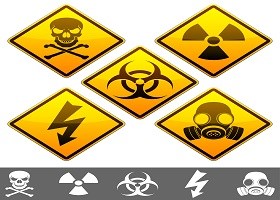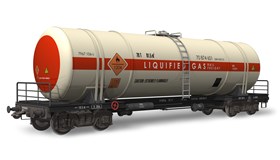Air quality standards in the environmental law in Israel are determined through "strabismus" to what is happening in Europe (applicable documents according to IPPC Directive, the provisions of the German -T.A.Luft) and United States (US Clean Air Act). Early familiarity with foreign standards and current trends in this area are the benefits we offer you.
In 2008 passed the Clean Air Act, which came into effect starting in 2011. This law is one of the most complex and complicated laws enacted to date in Israel, and pursuant thereto emerged a wide range of regulations and directives, which must be acknowledged and recognized in order to comply with the legal requirements and cope with the de… Read More
Millions of cubic meters (MCM) of wastewater are being produced each year within the State of Israel. Part of the wastewater come from manufacturing, trade and services, a second part from urban household wastewater, and yet another part is farming sewage. Industrial waste itself may be divided into three types - industrial effluents, brines, and sanitary waste. While not constituting the largest amount of effluents of all wastewater in Israel, industrial effluents present a greater than average risk because they contain contaminants with a broader and more meaningful range of impact. It is no coincidence that most environmental law provisions which relate to wastewater treatment and the pre… Read More
The problem of land pollution is one of the most difficult problems to tackle in the environmental area - in terms of the ability to identify the infection, define the applicable treatment technologies, in terms of the high costs of treatment and in terms of the division of legal responsibilities on soil contamination. For example, it is often difficult to determine who is responsible for pollution of a land parcel, which changed hands several times, after a period of several decades. The answer to this question will determine who pays for the removal of pollution and restoration of land.
The judgment of the Haifa District Court concerning the plan for the establishment of a "children's pa… Read More
Whether you manufacture, import, pack, deal in, issue, transfer / prepare, store, or just hold hazardous substances - according to the Hazardous Substances Act, it is prohibited to handle hazardous materials without a Permit to hold toxins. But the law is not simple and it is not always easy to understand just which are the toxins for which a Permit must be obtained, and moreover - what are the concentration limitations and the quantities below which no toxic permit is required. Then, as if this is not enough - the judgments on the subject make the issue more complicated, and establish rules and other judicial practices that define the way of interpretation of the cases in which a permit is… Read More
Reduction in space for burying waste, greenhouse gas emissions and leakage of contaminants from soil and water from land filling led lawmakers in many countries, including Israel, to enact laws requiring complex packaging bearing special assessments. These rules require reducing the amount of packaging and the amount of hazardous materials found in them. Further the packaging laws apply the principles of extended warranties which require manufacturers and importers to collect and recycle packaging, either directly or through companies with whom they contact. In order to implement the Packaging Act, local authorities and businesses are required to separate packaging material from other waste… Read More
Transportation of hazardous substances is an essential stage for the industrial production and for the commercial use of chemicals. Transportation of hazardous materials may be made by the manufacturing company itself, and alternatively by a transportation company specialized in the field. Either way, we will advise you how to overcome the thicket of permits and licenses required to transport hazardous material and waste, how can you be duly prepared for the responsibilities connected with the transportation of hazardous materials. According to the legislation dealing with the issue, responsibility lies not only with the transporter - it lies also with those who sent on its way ( the dispatc… Read More
A waste disposal site is no longer a collection of caches and scattered piles debris on the ground. New technologies for sealing, drainage, energy production monitoring and other requirements and compliance of the various authorities, along with an intricate system of permits and licenses are only "part of the game" in the current environmental judicial atmosphere.
Waste sites are sites under " Surveillance" from a legal standpoint - regularly under legal exposure. By its very existence, a waste disposal site is undesirable and often local residents, who may suffer from the nuisance of odor, smoke and air pollution from transport, will take action against the site operators. Measures may b… Read More
Wastewater Treatment Plants (WWTP) and desalination institutes operate like any other industrial plant. The water - sea water or brackish water for desalination plants, and sewage for WWTP, are the raw materials. The water purification process, in both cases, is an industrial process for all intents and purposes. It uses machinery and elaborate production methods, new technologies, and as such require educated and skilled people. Byproducts emerge from the processes - water concentrates and used membranes in case of desalination plants, sludge in case of sewage treatment plants. At the end of the process - the product obtained is water, of varying quality and for various uses: ranging from d… Read More
According to the Water Act, water pollution is a change in the properties of the water in terms of physical, chemical, organoleptic, biological, bacteriological, radioactive or other, or a change in which water becomes dangerous to public health, or may adversely affect animal or plant life or is less suitable for the purpose to which it was used or intended to be used.
This definition is an expansion of the environmental law framework, and does not rely on intention but on the legal basis of the result, which makes things very difficult when coming to defend in court alleging the source of water pollution. It is quite likely, that at least one aspect of your activity causes you to commit a… Read More
The State of Israel is located along the eastern coast of the Mediterranean Sea. further on, its borders run along coasts bordering the Red Sea in Eilat and the Dead Sea. Protection of the sea from environmental hazards is regulated by a series of international treaties, including the Barcelona Convention for the Protection of the Mediterranean Sea, marine pollution treaties and the discharge of oil waste into the sea. The provisions of these Conventions are being altered from time to time med by the addition of new protocols, and these, in turn, find their way into the internal Israeli legislation. Since the State of Israel signed and ratified the Barcelona Convention and its protocols, the… Read More
In Israel there is always a shortage of water in general, and particularly of drinking water. Naturally, the southern part of the country is an arid zone and has to receive drinking water from other areas. In the north and the coastal strip, there is a trend of deterioration in water quality which requires the authorities to postpone new drilling and use of surface water resources for drinking.
According to the Public Health Act, the Health Ministry is the body responsible for the authorization and supervision of water resources intended to be supplied as drinking water. In this context, the Ministry of Health bears responsibility to allow use of surface water sources, to establish protect… Read More
For a long time, there is recognition that it is not enough to have environmental technological improvements that will make greener and decomposing materials - there is a need to actually reduce the quantities sent to landfills to save land resources and natural resources - both resources that are usually in short supply. As the concept of life - recycle is the solution to restore resources to production in place of new resources used.
Recycling is here with us, and it is here to stay. Plastics, tires, organic matter, sludge, metal, paper, trimmings, electronic devices and batteries - this is only part of the list of materials currently recycled in Israel and around the world. We are ve… Read More
Business license is the heart and the soul of the business. The business license and the adjacent terms are the main tools through which the local authority, the Ministry of Environment and other authorities regulate the environmental implications of activities. The Licensing Authority and the Ministry of Environmental Protection have the power to add special conditions to the business license. These special conditions are actually at the heart of the license, and violation of any of them may constitute a violation of the Business Licensing Law.
The issue of business license is a most complex issue requiring considerable expertise: the first phase is the application for the business licens… Read More
Unlike the old days when people were exposed to natural sources of radiation only, today's life in modern society cannot avoid exposure to radiation in general and specifically electric and electromagnetic radiation. Refrigerators, fluorescent lamps, devices controlled by remote control, instrumentation metal detector at the entrance to shopping malls and public places, cell phones, computers, floor heating systems and electrical installations - are only a small part of many sources of electric and electromagnetic radiation we are exposed to every day, practically in any given moment.
There is great sensitivity among the public with regard to exposure to radiation and its risks. Perhaps it… Read More
Worldwide, production of electricity undergoes fundamental structural changes. Power plants are transformed into independent profit centers and compete with each other for power supply. In this competition, to clean production technologies (Cleantech and Greentech) are used as marketing arguments, and so are new fuels, cogeneration, renewable energy, alternative, and the principle of "trading in pollutants".
Already today, in Europe, the United States in many other countries of quotas were established requiring a combination of alternative fuels and not only those from reserves of crude oil. A wide range of legal provisions, here in Israel and around the world, set binding energy efficienc… Read More
Most of the Israeli public was first exposed to to Genetic Engineering when the reports about "duplication" of the sheep "Dolly" were published. Short-term public discussion arose which focused primarily on ethical questions arising from the use of genetic engineering. The Israeli legislator did not remain indifferent and rushed to enact a law prohibiting the "replication" of people and experiments involving human genetic intervention.
The biotechnology revolution is underway. Food, agricultural seeds and crops are undergoing a process of genetic engineering to give them the desired properties. However, the biotechnology industry can have environmental impacts during the manufacturing proc… Read More
Nanotechnology is a relatively young scientific field, which deals with particles on the scale of a single molecule. Small dimensions reflect different aspects of natural law than those reflected in the characteristics of large bodies. For example, nanoscale materials can be stronger, lighter, tougher, capable of storing energy. The difference between the surface area the body size combined with the tiny size of the particles cause change in such factors as strength properties of the chemical bond - and cause different properties compared to these materials in regular composition.
As often in the field of environmental protection, in an effort to benefit the both the environment and the in… Read More
In terms of the environment, agriculture has a double role: on one hand, agriculture is the basis for the existence of humanity. Without food - sufficient in quantity and quality - there will be no humanity. In terms of planning - Agriculture is currently causing the effective preservation of open spaces. Also, crops increase the ability to absorb pollutants from the environment, thus preventing desertification processes. On the other hand - agricultural activity holds great potential for causing environmental pollution and causing hazards. Thus, pig and dairy farms effluents, and leachates of fabric houses that are not dealt by modern methods, flow uncontrollably and pollute the underground… Read More
Planning and construction have a wide impact on the Company's activities for the entire "life cycle". Town plans setting rules for what is permissible on each parcel impose restrictions on land use also for environmental reasons, imposing necessary environmental preventive measures, and often require the purification of the land in order to change its designation. "Creeping" of "sensitive" land use in the vicinity of factories in the years after their establishment serves as grounds for the authorities to impose restrictions on the activities of those factories, and issue conditional and restrictive business licenses demanding the fulfillment of planning and construction regulations, adjusti… Read More
ISO - 14000 is the known name of a "family" of standards published by the International Accounting Standards. The concern of these standards is to raise awareness on environmental impacts of decision-making processes in the organization. The standards seek to penetrate all sectors of activity and influence the organization's Life cycle in the environmental field, and change the way it looks at the world around it, assesses risks and opportunities, and makes decisions.
Standard ISO 14001 is a standard that outlines the path to a sustainable environmental management system, with the wording of a system of rules that are expressed in environmental practices. Environmental regulations that con… Read More
An internal investigation following an environmental event always takes place urgently and under diverse pressures. Such investigation and its outcome carry complex implications to criminal proceedings that may be expected to follow, therefore it is of crucial importance to carefully edit and prepare the outcome. For example, after the occurrence of an environmental event, probably there will not be enough time to consider things such as:
May the internal investigation report eventually incriminate the plant?
How is internal investigation report exposed to the public and to the authorities?
What are the issues, and what method of inquiry should be employed in the investigation?
In o… Read More
You just closed a good deal, acquired a company or some real estate... Are you sure you can really sleep peacefully? not sure! Often, the advisability of a transaction may turn out to be much lower than the face estimate, if you forgot to check what activities occurred on the piece of ground before you that may have caused potential contamination or pollution of the land or the groundwater. If that actually happened and you might have "fallen asleep in watch" - and neglected the examination of the environmental performance of that company, you may be in for a nasty surprise.
But examining the ground pollution history is not enough. Buying a functional and earning company is no guarantee th… Read More
Delivery of environmental information in Israel is a fundamental principle of environmental law and environmental justice. This principle is established by the Aarhus Convention and implemented in Israel and abroad. For example, while the Freedom of Information Act, which gives every citizen or resident the right to receive information from a public authority deals with any information of general type, the importance of environmental information in light of special regulations enacted under this Law requires entities that emit pollutants to the environment to report on emissions proactively.
As a result, large volumes of additional environmental information pass from factories and companie… Read More
In recent years, corporations developed and adopted the approach defining the notion of environmental commitment as part of the idea of social responsibility, seen as a comprehensive strategic approach aimed on the one hand to serve as a bridge between the company and the surrounding community and on the other hand to enhance the business success of the firm. On a wider perspective, in addition to a commitment to protect the environment and reduce the negative effects of the firm on the environment, social responsibility includes other areas such as ethical conduct of business (avoiding biased, misleading advertising, the use of children as cheap labor, etc), marketing products which incorpo… Read More
Noise is a physical phenomenon of moving air that causes undesired sound.
Noise is an environmental nuisance that causes mental stress, and in high levels even causes harm to human health. Although noise is only a local phenomenon it can sometimes have an impact on a large group of people, such as residents living near airports or main roads.
Today, technical progress makes the protection from noise easier: modern silent motors, and innovative ways of construction that reduces the exposure to noise from the surroundings. Also the fact that the temperature in the houses is regulated and therefore houses have to be isolated contributes to the protection from noise although it is not made for… Read More
More than 500 million European citizens create massive amounts of electronic waste, while waste storage capacity is being depleted.
Under the environmental law in Israel for treatment of electrical and electronic equipment and batteries, any manufacturer or importer of electrical and electronic equipment or batteries, is responsible for recycling the electrical and electronic equipment sold, even if it will come out of use after many years. The environmental legislation established mechanisms requiring annual reports, employing of recognized bodies for those tasks and many other duties. Breach of these obligations can lead to the imposition of significant monetary sanctions as well as the… Read More
Upon completion in 2006, the EU published the REACH regulations - a novel and innovative legislation dealing with regulating the Registration, Evaluation, Authorization and Restrictions (REACH) imposed on all chemicals produced or entering the European market. This is the most extensive piece of legislation ever enacted in Europe, which cancels or alters some 40 existing directives. Unlike previous agreements, the REACH regulations explicitly refer to the system management mechanism, through the establishment of a European Agency for chemicals that tracks and manages chemicals registration, checks the documents and provides additional provisions or conditions for control - using a number of… Read More
Climate change and global warming are now a very high international and national priority issue, and constitute a major concern in the field of environmental protection and environmental law.
Recognition of greenhouse gas emissions as a direct cause of global warming and the realization that this warming is of very serious consequences for man and the environment have actually become common knowledge and within the judicial and scientific consensus. One of the major causes of greenhouse gas emissions is a wasteful use of energy. Israel passed a law aimed at conservation as well as efficient and economical use of energy sources. Multiple regulations have been installed under the law, while… Read More
Many times problems and environmental disputes take a long time, and the parties are unable to resolve them on their own. The reasons are many and can be due to the legal and scientific complexity of the subject, the multiplicity of parties and the multiplicity of overt and covert interests. Being an independent and uncommitted law office we have the tools to help you resolve the conflict faster through processes of environmental mediation or arbitration. Our vast experience and profound understanding of the field of environmental law, both in terms of the legal and scientific aspects, allow us to suggest quick and discreet creative solutions anchored in a legal attire and thus enable the pa… Read More
Around 180 countries worldwide have signed and ratified the International Convention on International Trade in Endangered Species of Wild Fauna and Flora - CITES.
The Signatory States implement the Convention through internal legislation. Israel signed and ratified the Convention. The Convention is implemented in Israel by internal legislation that was amended in September 2017 and adapted to the current list of species as it appears in the Convention. The Convention is administered in Israel by the Nature and Parks Authority.
If you are seeking to import or export animals or plants, including raw products thereof, or finished products containing parts thereof, the legislative provisions… Read More
Submission of an environmental claim is a complex and complicated process that requires expertise and experience. This is even truer when applying for an environmental claim as a class action. In recent years, our law firm has filed innovative class actions, even on a global scale. These actions relate, inter alia, to legal grounds of:
Litigation of climate change - air pollution by emission of greenhouse gases and causing climate change, pollution by burning hazardous substances and causing odor hazards;
Pollution of water sources by industrial effluents and substances used in medicines, thereby harming sources of surface water and groundwater, which are the property of the public;
Da… Read More
The sense of smell is a reaction to a certain level (stimulus threshold) of volatile particles in the air.
Above a certain level, odor is a serious environmental nuisance and its consequences are reflected mainly in residential and commercial areas, but also within workers in industrial plants. Exposure to odor hazards creates discomfort and can also cause health damage. Sources of odor hazards are diverse and numerous: materials emitted by air from industrial processes, wastewater treatment plants, waste disposal sites, agricultural activities and more. Provisions regarding odor hazards are found, inter alia, in the Hazardous Prevention Act, 1961 and regulations issued thereunder, such as… Read More
Radon is a radioactive element naturally found in the form of gas. The radon is abundant with some soil layers and may accumulate on the lower floors of buildings, and even migrate to the upper floors through pipeline of infrastructure (such as a telephone). Inhaled, radon can cause the initiation (cancer) of the lung cells. The Knesset (14th), as well as the Knesset that preceded it, submitted a private bill for the removal of radon gas hazards, which was intended to require the conduct of radon gas detection tests in public buildings and to take measures to prevent the hazard. The bill has not been promulgated into law, so it is no longer before the legislature. There is a general legisla… Read More
Are your products subject to any order of limitation by California's Proposition 65?
Do the substances in the products fall under the scope of Proposition 65?
If the substances in the products fall under the scope of Proposition 65, are there any exemptions related to these substances?
If the substances are under the scope of the legislation and no exemption is valid, what is the implication of it meaning, what should be done.
California's Proposition 65, officially titled the "Safe Drinking Water and Toxic Enforcement Act of 1986" provides, in pertinent part:
A prohibition on businesses from knowingly discharging or releasing a chemical known to the state to cause cancer or re… Read More
Asbestos is a dangerous substance. It can cause, among other things, lung cancer and mesothelioma. Working with asbestos has aspects of environment and safety.
The main law dealing with this is the Prevention of Asbestos and Harmful Dust Hazard Law, 2011.
The Occupational Safety Regulations (Occupational Hygiene and Public Health and Workers in Harmful Dust), 1984, are another piece of legislation that regulates aspects of working with asbestos-containing material and disposal such waste material. The regulations impose various duties on both the "employer" and the holder where construction work is carried out in asbestos.
The practice of asbestos, including dismantling, supervision, op… Read More
Environmental law is largely based on quantitative and qualitative data of pollutants originating from monitoring systems.
Most of the monitoring data is provided after samples are taken, they are transferred to the laboratory and there the analyzes are carried out, the results of which are reflected in printed output. Over the years, measuring devices have been developed that allow for immediate sampling and environmental analysis of certain pollutants without the need for laboratory samples.
There are now sophisticated measuring devices, each capable of automatically measuring a number of parameters, where the device's read can be transmitted in real time to a remote point in wired, or w… Read More
The falling rain can be a source of water or a source of trouble. Flooding that causes damage to people, property and environmental pollution caused by drift of polluted rainwater to rivers and seas is a source of serious problems.
On the other hand there is a great potential in rainwater as a water source, a natural resource that is increasingly in short supply.The climate change we are experiencing and their effects on the rainfall regime, intensities and prevalence, are a major challenge to the authorities and planners in light of the many hazards that can be found in the runoff and in view of the need to pool these water for agriculture and irrigation purposes.
The founders of the… Read More
A Cold winter day. The wind is blowing, temperatures are dropping and heavy rain is falling outside.
What is more pleasant than sitting at home, warming up by a wood stove, watching the flames and hearing the crackling of the wood burning in the stove.
Do we know what is emitted in the chimney of the oven?
What is the legislation and regulation applied to the operation of such a stove?
What happens when this is done in concentrations of houses or or of settlements?
Are there any legal restrictions on types of stoves or on types of wood that are put in for incineration?
How can communities reach a settlement with residents, which on the one hand will allow legal operation of the stoves… Read More
Light pollution is a real nuisance for humans and nature and can also cause significant health problems.
This is the set of negative effects of artificial outdoor lighting during the hours of darkness. These include lighting at a place, time, shade and intensity that are not required, thus creating a lighting nuisance for nearby residents, or for ecological systems, following a disturbance to the natural lighting patterns.
Studies show that damage to the lighting cycle affects the normal functioning of metabolic and physiological systems.
Precisely because the Israeli legislation does not provide a direct response to this hazard, a deepening and understanding of the general environment… Read More


 33 Years of Experience in Environmental Law
33 Years of Experience in Environmental Law


 Experts on Safety Law
Experts on Safety Law


 International Environmental Law
International Environmental Law


 Integrating Law Technology & Science
Integrating Law Technology & Science


 Personal Attention & Professionalism Above All
Personal Attention & Professionalism Above All






